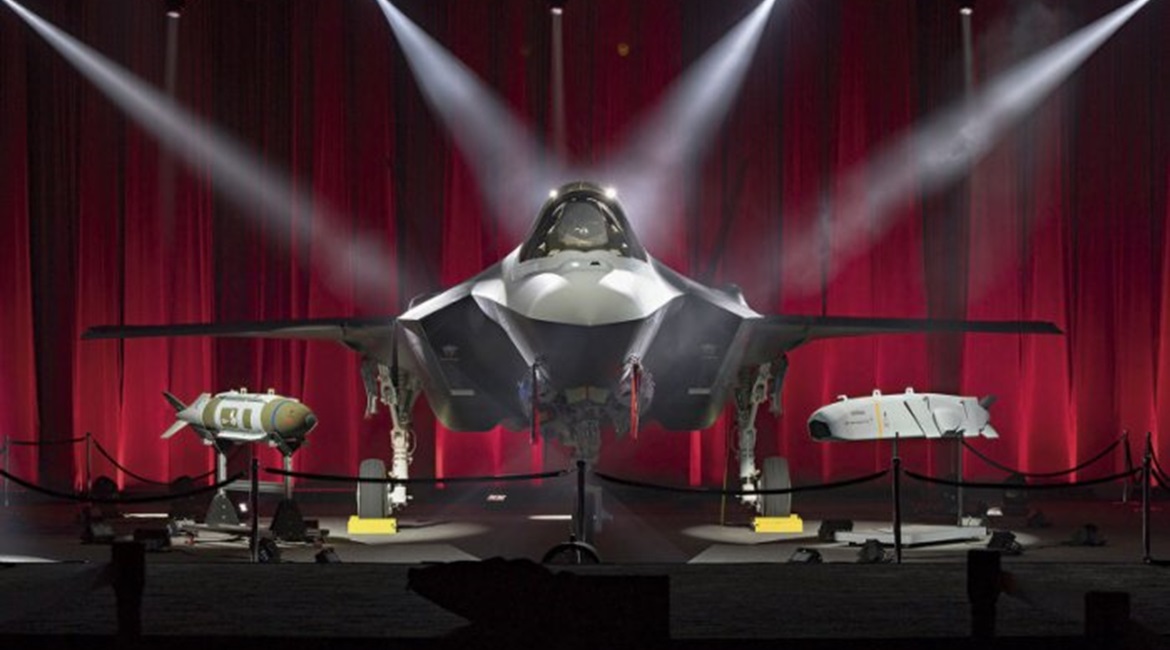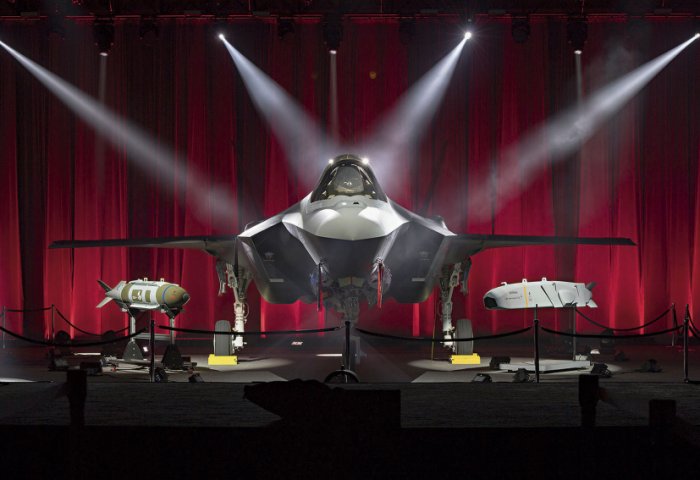
Lockheed Martin does not expect uncertainty surrounding Turkey’s continued involvement in the F-35 Lightning II Joint Strike Fighter (JSF) to negatively affect the wider international programme, and says that it always has contingency plans to source alternate suppliers if need be.

Turkey's first F-35A seen at its rollout in 2018. While Lockheed Martin says it is unconcerned about the country's future involvement in the programme, the US government is moving ahead with ejecting Turkey over its plans to procure the Russian S-400 ground-based air defence system. (Lockheed Martin)
Speaking at the Paris Air Show on 17 June, Greg Ulmer, vice-president and general manager, F-35 programme, said that Turkey’s continued involvement or lack thereof in the F-35 programme is a governmental decision, but that as far as Lockheed Martin is concerned, the country’s programme-of-record for 100 conventional take-off and landing (CTOL) F-35As still stands.
“As of today, nothing has changed. The programme-of-record stands and we are still producing aircraft for Turkey,” Ulmer said, adding, “I’m not going to speculate beyond that.”
However, with the US government ramping up its threats to eject Turkey from the programme over its continued intent to procure the Russian S-400 ground-based air defence (GBAD) system, concerns are being raised as to what this might mean for the production programme given that Turkish industry produces some of the aircraft’s major parts, including some of the centre fuselages.
The US government recently announced that it would transfer Turkish workshare for the F-35 programme to other partners in 2020 unless Ankara reversed its S-400 procurement decision. Prominent Turkish partners include Turkish Aerospace (formerly Turkish Aerospace Industries [TAI]) and Havelsan, among others.
Looking to read the full article?
Gain unlimited access to Janes news and more...




